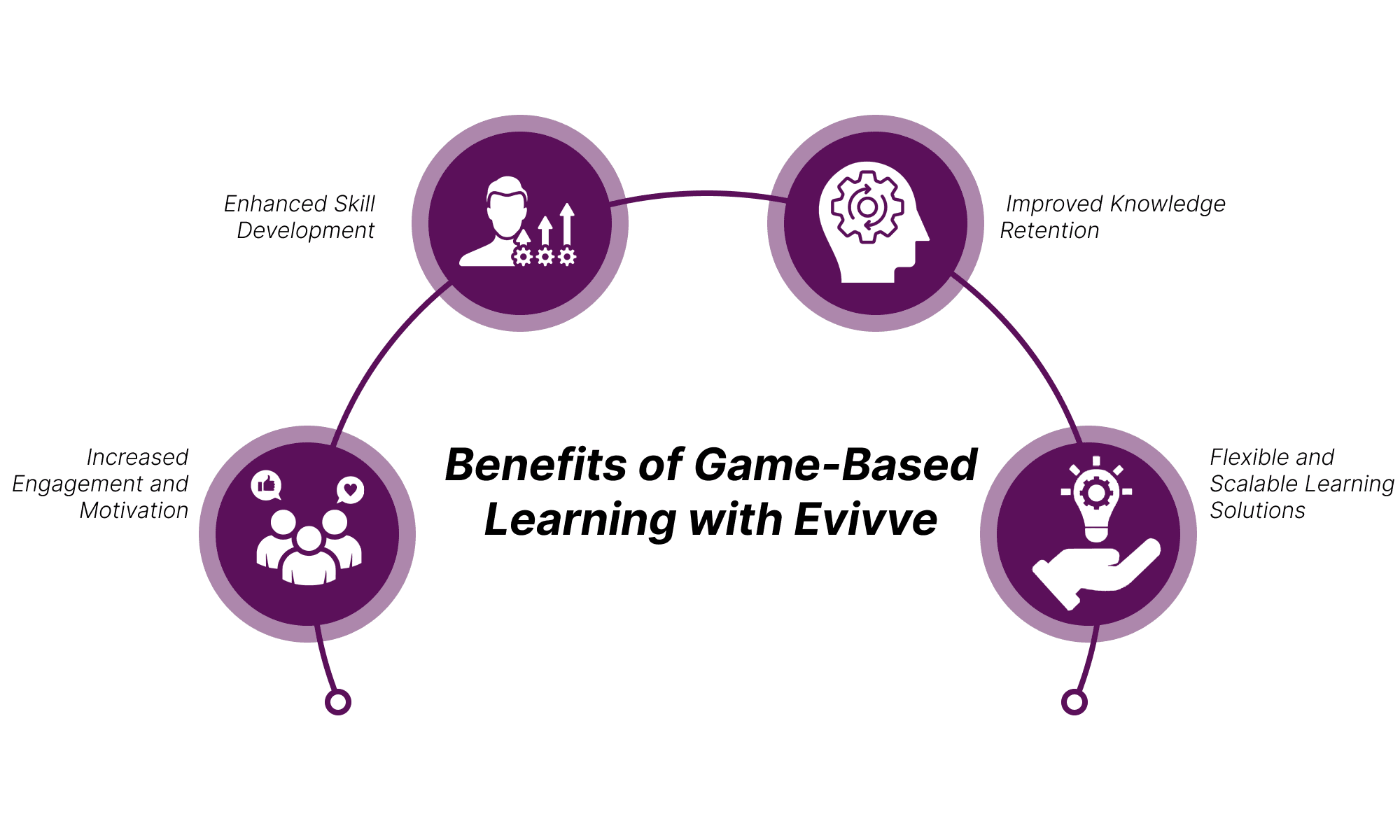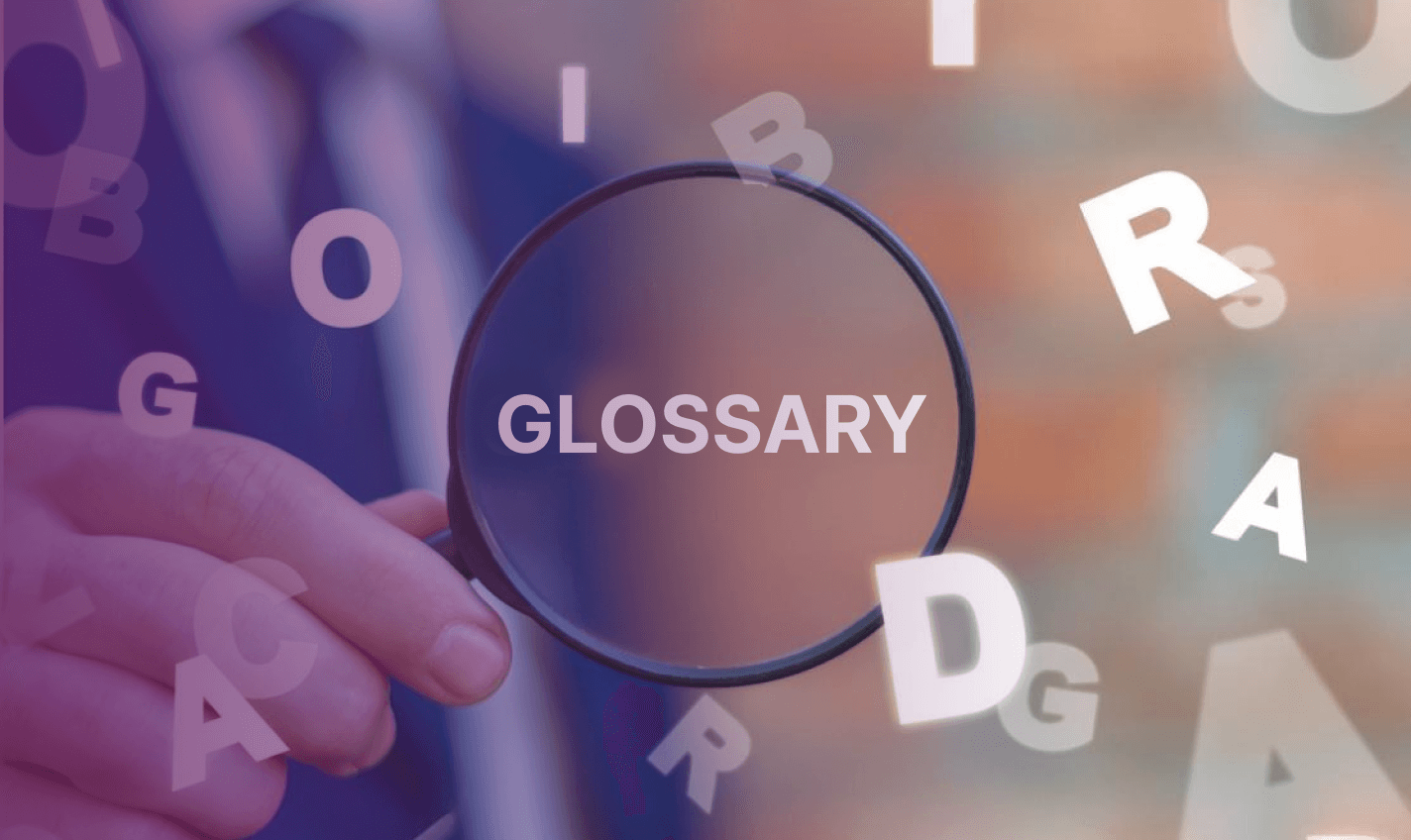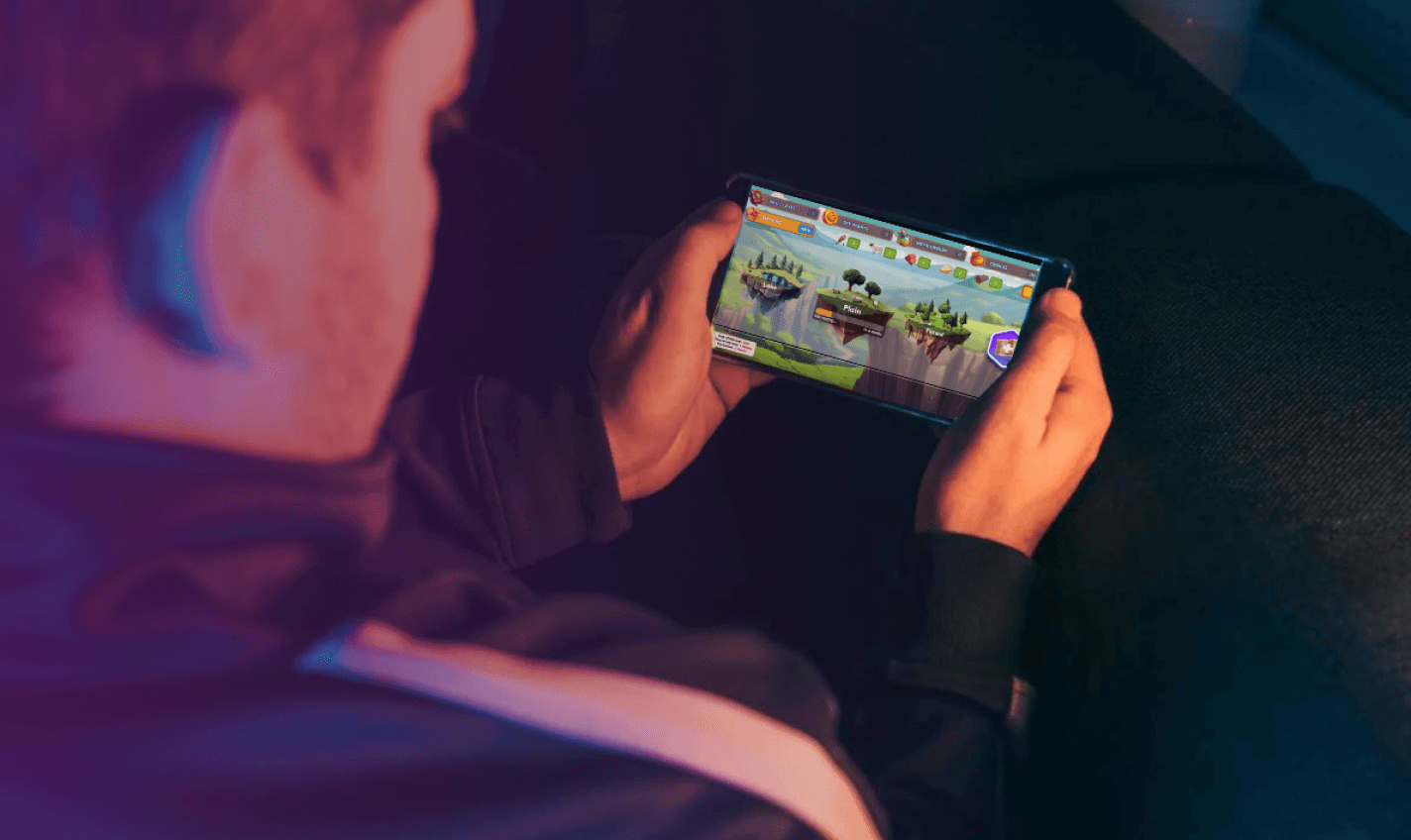Evivve is an immersive leadership simulation that transforms corporate training into a dynamic, hands-on experience. Build real-world skills through interactive gameplay and data-driven insights.
- Solve low engagement and retention issues with experiential learning, boosting participation and knowledge retention.
- Address the lack of real-world leadership practice by simulating decision-making and strategic thinking challenges.
- Overcome poor communication and trust issues by fostering teamwork, collaboration, and effective communication.
- Replace passive learning with adaptive, interactive experiences that cater to different learning styles and enhance critical thinking.
If you’re curious about how game-based learning can transform corporate training and nodded along as you read the insights above, you’re in for a treat. We’ve navigated these scenarios, too, and what follows is the solution you’ve been seeking with Evivve.
Bring your learning sessions to life with Evivve, the ultimate game-based learning experience that turns employees into leaders and teams into high-performing units.
Gone are the days of boring training programs. Evivve puts your team in a fast-paced, interactive simulation where they’ll collaborate, solve problems, and practice decision-making—all in a fun, immersive environment.
Why Integrate Evivve Game Play?

Integrating Evivve gameplay into corporate training offers a dynamic, immersive learning experience that boosts engagement and builds critical skills like leadership, strategic thinking, communication, and problem-solving. With real-world scenarios and real-time data-driven insights, participants gain practical knowledge while facilitators receive actionable feedback on individual and team performance. Evivve is flexible and scalable—ideal for virtual and in-person sessions—creating a safe space for experimentation and growth without real-world risks.
Benefits of Designing Game-Based Learning Programs with Evivve
1. Increased Engagement and Motivation
Game-based learning turns passive training into an active experience, boosting motivation and participation.
- Interactive gameplay keeps learners focused and invested.
- Competitive and collaborative elements make learning exciting.
2. Enhanced Skill Development
Evivve builds real-world skills such as leadership, communication, and decision-making in a safe environment.
- Practice strategic thinking and problem-solving.
- Strengthen collaboration and adaptability through experiential learning.
3. Improved Knowledge Retention
Experiential learning ensures concepts stick by helping participants apply knowledge in practical, real-world scenarios.
- Hands-on practice reinforces learning.
- Reflection sessions help solidify key takeaways.
4. Flexible and Scalable Learning Solutions
Evivve adapts to any learning environment—remote, hybrid, or in-person—catering to diverse audience sizes and objectives.
- Customizable game scenarios to meet specific learning needs.
- Suitable for small teams, large organizations, and global audiences.
Transforming Corporate Training with Evivve Game-Based Learning
Evivve revolutionizes corporate training by turning traditional learning into an engaging, immersive experience. Participants build real-world skills like leadership development, communication, and strategic thinking through interactive gameplay. Facilitators gain real-time insights with comprehensive reports, ensuring measurable outcomes and continuous improvement. Evivve makes learning fun, impactful, and directly applicable to workplace challenges.
Interactive Learning Experience
Evivve’s simulation engages participants in decision-making, collaboration, and strategy execution in real-time. This hands-on approach accelerates learning and boosts retention.
Flexible Delivery – Online or In-Person
Evivve can be facilitated online and in person, making it accessible for remote teams and global organizations.
Build Core Skills
The game builds leadership, communication, resilience, and problem-solving skills—essential in the modern workplace.
Frameworks and Models for Game-Based Learning
Designing compelling game-based learning experiences requires a structured approach grounded in proven frameworks and models. These frameworks help facilitators deliver impactful learning, ensuring participants engage deeply and achieve meaningful outcomes. From Kolb’s Experiential Learning Cycle, which emphasizes learning through experience, to the AFERR Model, crafted explicitly for Evivve’s facilitation approach, each model offers unique insights. Facilitators can create dynamic, outcome-oriented learning programs that inspire and transform by integrating evaluation tools like Kirkpatrick’s Model, instructional design frameworks like ADDIE, and motivation-driven systems like the Octalysis Framework.
1. Kolb’s Experiential Learning Cycle
This model emphasizes learning as a continuous process that integrates experience and reflection. It progresses through four stages: Concrete Experience (doing or experiencing), Reflective Observation (reviewing and reflecting), Abstract Conceptualization (concluding and learning from the experience), and Active Experimentation (applying the learning to new situations). It’s ideal for game-based learning as it encourages experiential insights and real-world application.
2. AFERR Model
The AFERR Model, exclusive to Evivve’s game-based facilitation, ensures that learning is engaging, reflective, and applicable. Focusing on Activate, Forecast, Experiment, Reflect, and Realize helps facilitators create an impactful experience where participants can explore, experiment, and connect insights directly to their professional roles. This model fosters deep learning through guided discovery and reflection.
3. Kirkpatrick’s Model of Training Evaluation
This four-level evaluation model is widely used to assess the impact of learning programs. It measures Reaction (participant satisfaction), Learning (knowledge or skills gained), Behavior (how learning translates to workplace behavior), and Results (business outcomes). For game-based learning it helps quantify the return on investment (ROI) and ensures the learning experience aligns with organizational goals.
4. ADDIE Model for Instructional Design
A systematic approach to instructional design, ADDIE consists of five phases: Analyze, Design, Develop, Implement, and Evaluate. It provides a structured framework for developing learning programs like Evivve’s certification. Each phase ensures that learning experiences are well-planned, engaging, and continuously improved based on feedback and evaluation.
5. Gamification Frameworks (Octalysis Framework)
The Octalysis Framework, created by Yu-kai Chou, focuses on eight core drives for human motivation in gamification: Epic Meaning, Development & Accomplishment, Empowerment, Ownership, Social Influence, Scarcity, Unpredictability, and Avoidance. When applied to game-based learning, it helps design experiences that motivate participants, sustain engagement, and promote long-term behavioral change.
Key Features of Evivve as a Game-Based Learning Platform
Evivve transforms corporate training by blending experiential learning with real-time facilitation and deep insights. Designed for leadership development and team building, it offers a fully customizable, data-driven learning experience.
- Real-Time Facilitated Experience – Expert facilitators guide participants, providing instant feedback and driving meaningful engagement.
- Built for Corporate Learning & Leadership – Focused on strategic thinking, communication, and leadership skills through real-world business simulations.
- Comprehensive Reporting & Insights – Personal, group, and system-level reports help track performance and ensure measurable learning outcomes.
- Flexible and Scalable – Ideal for remote, hybrid, or in-person learning environments, accommodating both small teams and large organizations.
- Customizable Gameplay – Game scenarios can be tailored to align with organizational goals and specific learning objectives.
Ready to Transform Learning with Evivve?
Take your training to the next level with immersive, game-based learning. Enhance engagement, boost leadership skills, and gain actionable insights while having fun!
FAQs: Leveraging Evivve for Game-Based Learning
1. What is game-based learning, and how does Evivve apply it?
Game-based learning integrates game elements into training to enhance engagement and learning outcomes. Evivve uses interactive scenarios where participants experience real-time challenges, encouraging hands-on learning and reflection.
2. How does game-based learning improve knowledge retention?
Through active participation and experiential learning, Evivve helps participants retain knowledge more effectively than traditional methods. Reflection and immediate feedback further reinforce learning outcomes.
3. How is Evivve different from traditional training methods?
Unlike lecture-based training, Evivve offers an immersive experience where participants learn by doing. The game environment encourages collaboration, problem-solving, and critical thinking in a fun, engaging format.
4. Can game-based learning be tailored to specific organizational goals?
Yes! Evivve is highly customizable. Organizations can adapt scenarios to meet unique learning objectives, such as improving leadership skills, fostering innovation, or enhancing team collaboration.
5. How do facilitators maximize the impact of game-based learning with Evivve?
Facilitators use the AFERR Model to structure sessions, guiding participants through awareness, engagement, reflection, and relevance. Real-time insights and post-game reports help facilitators link game experiences to workplace applications.

Glossary Defined
Your comprehensive guide to the Evivve ecosystem. Define key terms, from the AFERR model to Systems Thinking, to deepen your platform knowledge.


Single-Player Game
Your complete support resource. Access step-by-step guides, program templates, and technical documentation to optimize your facilitation workflow.


Official Newsroom
Explore Evivve’s official press releases, industry awards, and media features. A curated hub demonstrating our leadership and impact in the L&D space.


Leave A Reply
Your email address will not be published. Required fields are marked *